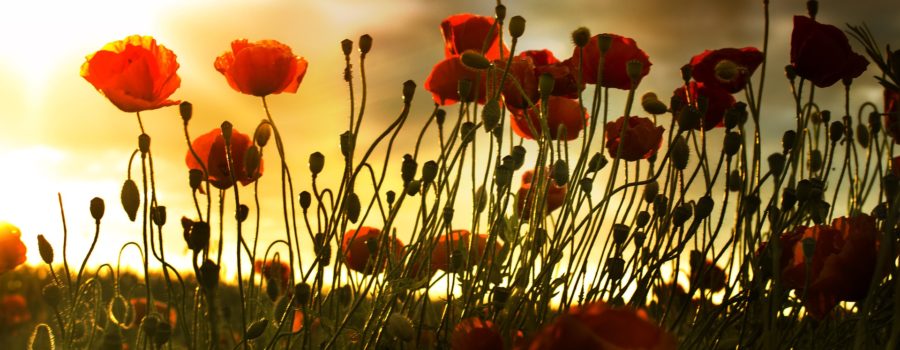In itself the Bible can be compared to a map; and one of the problems with maps is that you cannot drink from their waters or swim in their lakes. But the moment a person begins to believe what he reads, and this, at the point of obedience, a miracle happens. He discreetly passes from a mere map to a real land—in this case, the glorious and mysterious Land of God. I am not saying the Bible changes in nature. I am only saying that the person passes from a mere description to the object being described.
The words of Moses reported in Deuteronomy 8:7–9 set a good example:
For the Lord your God is bringing you into a good land, a land of brooks of water, of fountains and springs, that flow out of valleys and hills; a land of wheat and barley, of vines and fig trees and pomegranates, a land of olive oil and honey; a land in which you will eat bread without scarcity, in which you will lack nothing; a land whose stones are iron and out of whose hills you can dig copper.” (Deut. 8:7–9)
These words—spoken to the people of Israel—were only informative and descriptive. Only after many years did they become substantial, but only for those who obeyed. In this specific case the golf between the description and the substance was a matter of spacial distance. But the one I referred hitherto, namely, the golf between the Bible as a description and the object being described is a matter of moral distance, and at times, a matter of degree in the realm of consecration. Ultimately the question is: Am I in the real Land or only in touch with its description?
God’s Land
Now, in the depth of God’s Land there are gardens and fields exhibiting all sorts of flowers, each one more amazing than the other. Yet all these varieties can be classified into two groups. The first one is reminiscent of carnations, i.e., they can be picked and brought to friends at home—all the while retaining their freshness and beauty. The second stands in high contrast; it could be compared to poppies. They wither the moment they are separated from their roots and all their beauty is lost forever. If you try to make a bouquet of poppies you will understand what I mean. By the time you will offer the posy all of its splendor will be gone.
Inexpressible experiences
Paul seems to refer to such poppies when he writes:
And I know such a man—whether in the body or out of the body I do not know, God knows—how he was caught up into Paradise and heard inexpressible words, which it is not lawful for a man to utter” (2 Cor. 12:3,4).
In this specific occasion the apostle had heard what was communicated to him, but it was impossible for him to promulgate it to others. The words he heard were, as Paul states, inexpressible words.
The same experience can happen with what pertains to sight, i.e., God can lead us in His Land and cause us to observe the blooms of amazing profoundness. When this happens we are left with one of two possibilities: What we observe and experience can be a carnation or a poppy. It might be communicable to others, and with the help of the Holy Spirit the communication will be revealing and effective. It will lead people to such actualities as repentance, admiration or unspeakable joy. But what we have observed and experienced might also be a poppy. In this case we will not be able to communicate it effectively. If we would attempt to do so, our communication would carry no colors, no smell, no magnificence, and no life.
What does this means in practice?
In practice it means that the only flowers that can be picked from the field of God and offered to you at home or in a church will be those sharing the properties of carnations. Thus a testimony can bless you, a sermon edify you, a teaching shed meaningful light on your life, and so on. But what about the flowers having the properties of a poppy? How can you see their beauty and experience their impartation?
The only way this can be done is by going yourself in the Land of God and walk through its fields and gardens. One thing is certain! Even if you would have access to all the pastors and Christian teachers in the world, and would live with them for 500 years, there are things they will not be able to communicate to you. The faster we understand the principle the better off we will be.
The demands of a Land
When it comes to poppies the only thing others can do for you is to pray that God will draw and guide you beyond the beaten path of the religious status quo, i.e., beyond the rivers and ravines. You might have to go to the other side of the valleys of the shadow of death where the sun shines brighter. There is no other way. You will have to climb or else no poppies will be seen; to advance or stay without; to resolve to get there or linger in your comfort zone.
Why is it so? It is so because God wants it so. He doesn’t intend to serve us everything on a silver plate. He is the Rewarder of those who diligently seek Him (Heb. 11:6). He loves the spiritual explorer, the one whose heart is set on the impossible.
Why are there carnations then? They are the expression of God’s mercy and lovingkindness. Without them we would be little inspire to press on beyond the veil. So He gives them with grace and generosity. This is the heart of the Beloved: beautiful and beautifying, pure and purifying, holy and sanctifying, inspired and inspiring. Look at Him! He run like a gazelle or a young stag upon the mountains of Bether (Song 2:17). Let us follow hard after Him and He will lead us to all sorts of wonders. We shall hear inexpressible words and see colors that cannot be described.
The tragedy
Today we are taught—in some evangelical milieus—that if we go to the right Bible School we will be able to explain just about everything and offer every possible flower growing in God’s Land. These sorts of pretences have given rise to a new species that claims to have the ability to express the inexpressible. So the mysteries of God, we are told, are being swallowed-up in “ministerial aptitudes” and explainable—if not spiritually—at least evangelically. Very few graduates seem conscious of the disaster and there they are, passing immortal flowers picked up centuries ago; flowers covered with the dust of time, hardly able to inspire a saint.
Brethren! Let us forget those things which are behind and reach forward to those things which are ahead, for there is a land of glory awaiting us with hills and valleys, gold and silver, and with carnations and inexpressible poppies. And don’t forget, all of these are there for you to apprehend.
If you think this post can help somebody you can share it with the options presented bellow.













